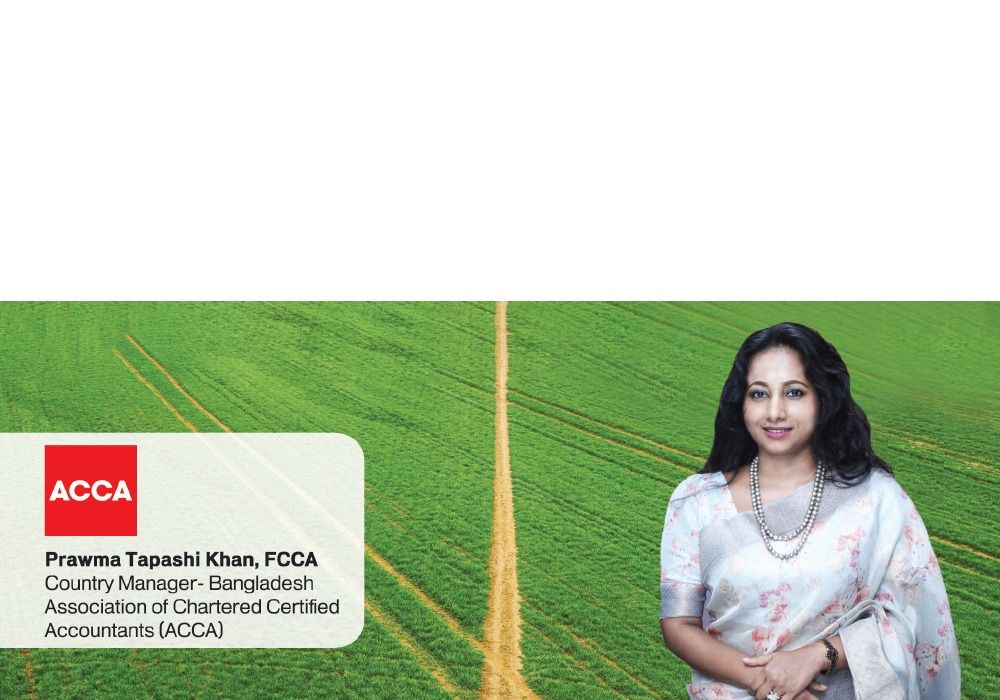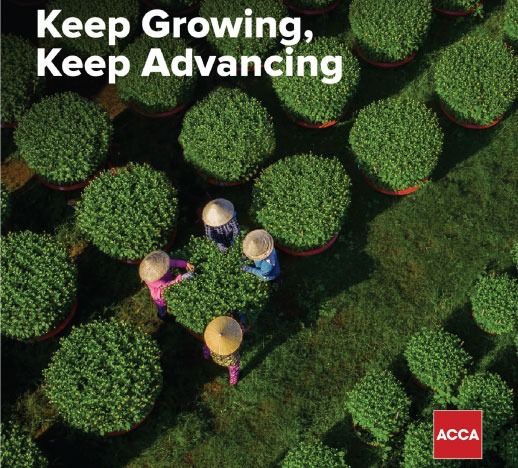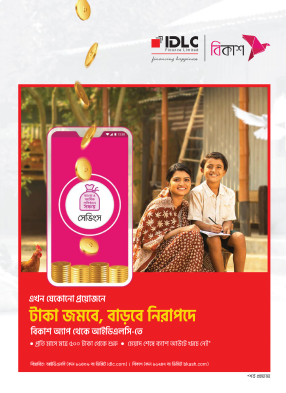- info@ficci.org.bd
- |
- +880248814801, +880248814802
- Contact Us
- |
- Become a Member
- |
- |
- |
- |
- |

Bangladesh stands at a critical juncture in its development trajectory. As we strive to attract and retain greater volumes of foreign direct investment (FDI), the importance of a stable, transparent, and ethical fiscal environment has never been clearer. While policy direction and economic reforms continue to evolve, one enduring pillar of investor confidence remains the same: the integrity of our financial and governance systems-supported by a strong and ethical accountancy profession.
As Country Manager of ACCA Bangladesh, I have the privilege of working with over 600 qualified professionals across sectors ranging from Managers to CEOS. Every day, they contribute to better governance, financial discipline, and transparency. Yet their work is not only technical-it is strategic. In today's investment landscape, professional accountants are essential to creating the kind of trust and predictability that serious investors demand.

Accountants Build Confidence Where It Matters Most
Investor confidence is not built on policy alone. It is built on reliability. It comes from knowing that rules are applied fairly, that financial reporting is accurate, and that governance mechanisms function as intended. In this regard, qualified accountants are among the most valuable contributors to our economy.
They are the ones who help businesses navigate compliance, ensure financial statements reflect reality, and encourage responsible decision-making. Their role becomes even more significant as Bangladesh continues its transition toward digitized tax systems and data-driven administration. With the right professional support, these changes can translate into meaningful efficiencies and reduced administrative burden for both businesses and government.
In a world increasingly driven by environmental, social, and governance (ESG) concerns, professional accountants are also at the forefront of aligning business practices with sustainability and transparency standards-further enhancing Bangladesh's attractiveness to forward-thinking impact investors.
A Gap That Demands Attention
Despite this vital role, Bangladesh faces a significant shortfall in the number of qualified professional accountants. With only a few thousand fully qualified professionals serving an economy of this scale, the gap is stark-particu- larly when compared to regional peers.
To support sustainable economic growth and attract high-quality investment, we must urgently invest in growing this profession. That includes making professional education more accessible, aligning domestic regulations with global accountancy standards, and encouraging public and private sector employers to prioritize ethical financial expertise.
This is not just about technical capacity-it's about building institutions that can support long-term value creation. Investors take note of a country's ability to enforce its own rules. A deeper, broader accountancy profession sends a powerful message that Bangladesh is serious about sound governance and financial integrity.

Green Taxation and Sustainable Growth
A modern fiscal policy must also reflect the realities of climate change and environmental responsibility. Bangladesh has already started to explore green taxation as a tool to both raise revenue and drive sustainable behavior. The principle is simple but powerful: those who cause environmental harm should contribute more to mitigating its impact-a concept widely known as "polluters pay."
At ACCA, we advocate for "tax shifting" strategies that increase taxes on pollution while reducing the burden on income and business activity. This not only encourages greener choices, but can also create a more competitive and investment-friendly environment.
As ACCA notes, green taxation is most effective when internationally harmonized, ensuring global firms can't sidestep responsibilities. For Bangladesh, gradually adopting these measures can attract ESG-conscious investors and promote long-term climate resilience. There are encouraging signs. For example, the government's decision to introduce a 10-year tax holiday for renewable energy investments is a welcome step that signals alignment between fiscal incentives and sustainability goals. Over time, expanding this approach through well-calibrated environmental levies-introduced transparently and in line with international norms-can position Bangladesh as a destination for ESG-conscious investors.
Keeping It Simple, Stable, and Certain
If there is one lesson echoed by investors across the world, it is this: unpredictability deters capital.
To truly catalyze FDI, Bangladesh must adhere to the three pillars of effective tax policy: simplicity, stability, and certainty-core principles championed by ACCA. Overly complex or frequently changing tax rules deter investment by introducing risk and administrative burden. In contrast, clear and consistent regulations lower compliance costs and enhance trust.
Stability, in particular, is vital for long-term planning. Businesses are more likely to invest when they trust that incentives or rates will not be reversed unpredictably. Recent steps toward multi-year tax planning frameworks are a move in the right direction and should be retained and refined.
These tenets reflect ACCA's broader vision for a strong tax system-one that is transparent, fair, and regularly reviewed. For Bangladesh, this means continuing to simplify tax procedures, broaden the tax base, and ensure laws are applied evenly and consistently. The goal is a tax system that allows businesses to focus less on navigat- ing red tape and more on creating value.
Simplification reduces cost and complexity. Stability allows businesses to plan ahead. And certainty-both in legislation and in how it is administered-ensures investors know what to expect. When these principles guide fiscal design, the entire investment ecosystem becomes more attractive and credible.
Efforts to modernize tax structures, streamline administration, and provide forward visibility into tax rates are all moves in the right direction. These reforms should continue under a shared national commitment to fairness, transparency, and accountability.

A Strategic Opportunity for the Nation
Bangladesh has an opportunity to shape a fiscal system that not only attracts investment, but earns long-term trust. That system must be built on the foundations of ethical governance, professional excellence, and sustainability. And at the heart of it, we need a larger, more empowered pool of professional accountants who can bring global standards, local insight, and strong integrity to the table.
Now is the time to invest in this profession, to champion simplicity and fairness in policy, and to adopt a tax system that reflects the values of a dynamic, forward-looking economy. By doing so, Bangladesh can confidently position itself as a destination where capital is not only welcomed but respected, protected, and valued.





